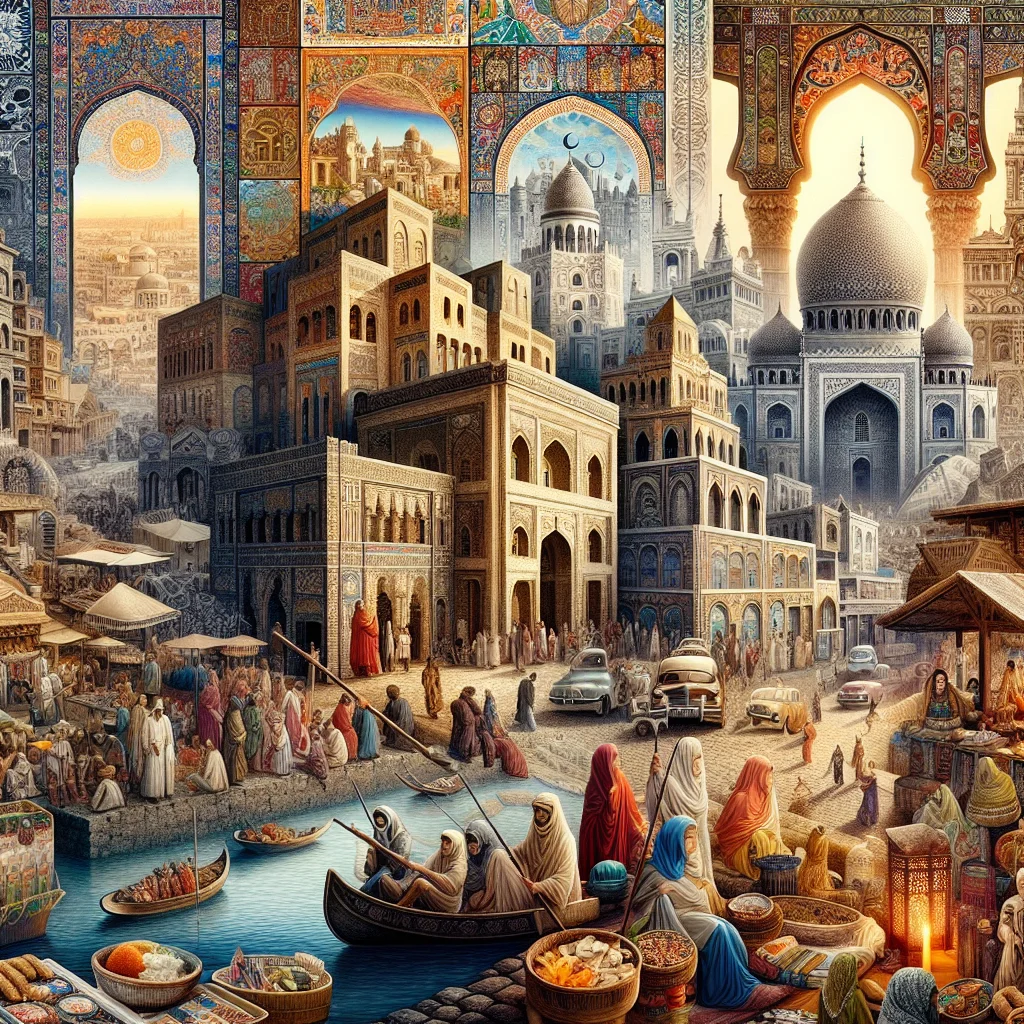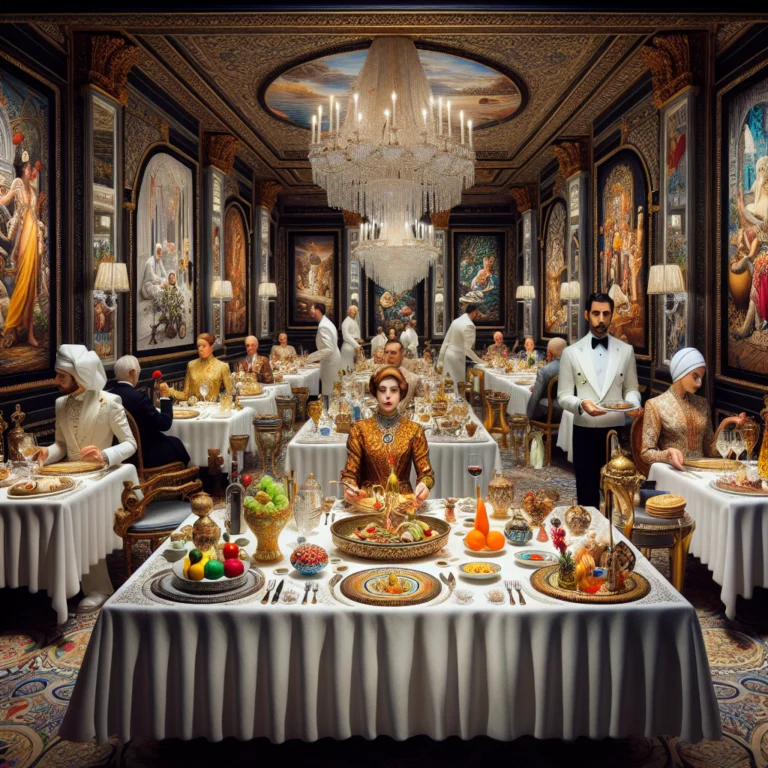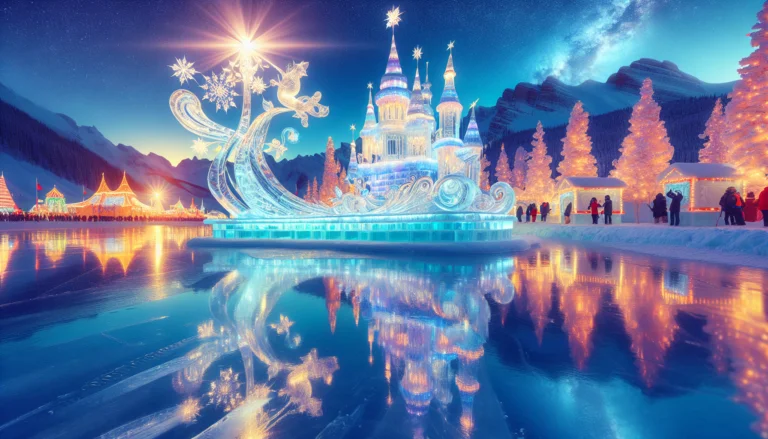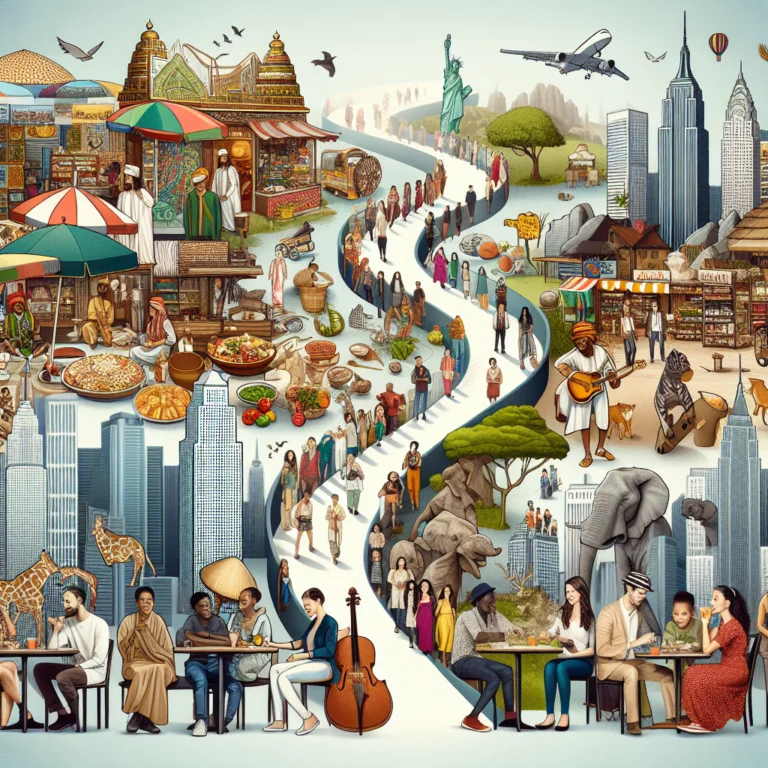Historical Hubs: Journey Through Time In These Cultural Cities
Embark on a captivating journey through time in these cultural cities as you explore the fascinating historical hubs that have shaped civilizations. From the vibrant streets of Rome, where ancient ruins and Renaissance art coexist harmoniously, to the charming canals of Amsterdam, where the Golden Age comes to life through its picturesque architecture, each city offers a unique glimpse into the past. Discover the imperial grandeur of Vienna, wander through the narrow medieval alleyways of Prague, or immerse yourself in the cultural melting pot of Istanbul. With their rich tapestry of traditions, art, and cuisine, these historical hubs are sure to leave you in awe and inspire your own exploration of the world’s cultural treasures. So pack your bags and get ready to embark on an unforgettable journey through time.
The Cultural Richness of Rome
Rome, the capital of Italy, is a city that epitomizes cultural richness. With its ancient historical significance, must-see landmarks, immersive cultural experiences, and modern reflection of its history, Rome offers a comprehensive journey through time.
Rome’s Ancient Historical Significance
Rome’s history dates back thousands of years, making it one of the most historically significant cities in the world. It was the capital of the Roman Empire, which had a profound influence on Western civilization. The city witnessed the rise and fall of empires, the birth of Christianity, and the spread of Roman culture to vast territories. As you stroll through the streets of Rome, you can feel the weight of history in every corner.
Must-See Landmarks of Rome
Rome is home to some of the most iconic landmarks in the world. The Colosseum, an ancient amphitheater, stands as a testament to the grandeur of the Roman Empire. Its towering structure and rich history make it a must-visit attraction. The Vatican City, an independent city-state within Rome, houses St. Peter’s Basilica and the Sistine Chapel, where you can marvel at masterpieces by Michelangelo. The Trevi Fountain is another enchanting landmark, known for its stunning architecture and the tradition of tossing a coin to ensure your return to Rome.
Immersive Cultural Experiences in Rome
To truly experience the cultural richness of Rome, immerse yourself in its vibrant traditions and practices. Take a leisurely walk through the charming neighborhoods and indulge in the local cuisine, such as pasta, pizza, and gelato. Explore the archaeological sites, such as the Roman Forum and Palatine Hill, to gain an insight into the daily life of ancient Romans. Attend a traditional Italian opera or visit one of the many art galleries and museums to appreciate the artistic heritage of Rome. Interact with the friendly locals and embrace their warm hospitality, as they are more than willing to share their cultural traditions with you.
Modern Rome Through a Historical Lens
Despite its ancient origins, Rome effortlessly blends its historical past with modernity. The city’s architecture is a perfect example of this fusion. You can find ancient ruins coexisting with contemporary buildings, creating a unique juxtaposition. The Spanish Steps, Piazza Navona, and Pantheon are prime examples of this architectural blend. Additionally, Rome hosts various cultural events throughout the year, showcasing the city’s rich artistic heritage. From music festivals to fashion shows, these events offer a glimpse into the modern pulse of Rome while paying homage to its ancient roots.
Unearthing The Splendors of Cairo
Cairo, the capital of Egypt, holds an intriguing allure with its ancient Egyptian legends, grandeur of architecture, living culture, and modern expression of ancient practices. Unearth the splendors of Cairo and embark on a journey through time.
Cairo’s Ancient Egyptian Legends
Cairo, often referred to as the “City of a Thousand Minarets,” is steeped in ancient Egyptian legends. The city is home to the Great Pyramids of Giza, one of the Seven Wonders of the Ancient World. Standing tall against the desert backdrop, these majestic structures amaze with their sheer size and intricate construction. Dive into the mysteries of the Sphinx, a limestone statue guarding the pyramids, and learn about the ancient pharaohs who once ruled this land, such as Tutankhamun and Ramses II.
The Grandeur of Egyptian Architecture
Cairo’s architecture is a testament to the grandeur of ancient Egyptian civilization. The Egyptian Museum houses an extensive collection of artifacts, including the treasures of Tutankhamun. The Citadel of Saladin, a medieval Islamic fortress, stands proudly atop a hill, offering panoramic views of the city. The Mosque of Muhammad Ali, located within the citadel, showcases the exquisite architecture of the Ottoman era. Visit the Coptic Cairo district to explore ancient Christian churches and the vibrant Khan El Khalili bazaar to experience the bustling atmosphere of Cairo.
Cairo’s Living Culture and Traditions
Cairo’s culture is vibrant and ever-evolving, as it merges the old with the new. Explore the Islamic Cairo district, where you can witness the daily rhythm of prayer and feel the spiritual energy of the city. Delight in the traditional folk music and dance performances, such as the mesmerizing Whirling Dervishes. Indulge in the flavors of Egyptian cuisine, with dishes like koshary, falafel, and baklava. Connect with the locals, who are known for their warm hospitality, and partake in their customs and traditions to truly experience the living culture of Cairo.
Cairo’s Modern Expression of Ancient Practices
While Cairo cherishes its ancient heritage, it also finds ways to express it in modern contexts. The sound and light shows at the Pyramids of Giza bring history to life through captivating audiovisual presentations. Contemporary art galleries, such as the vibrant Cairo Opera House, showcase the artistic expression of local talents. In addition, Cairo hosts various cultural festivals and events throughout the year, providing a platform for artists, musicians, and performers to share their modern interpretations of Egypt’s rich cultural tapestry.
Beijing: The Heart of the Orient
Beijing, the capital of China, holds a special place as the heart of the Orient. With its historical relevance, architectural wonders, unique cultural experiences, and the intertwining of modern and historic elements, Beijing offers a captivating glimpse into China’s rich cultural heritage.
Historical Relevance of Beijing’s Dynasties
Beijing’s history can be traced back over three millennia, and it has served as the capital for numerous Chinese dynasties. The city is adorned with imperial palaces, such as the Forbidden City, which was home to Chinese emperors for almost 500 years. The Temple of Heaven, built during the Ming Dynasty, is a sacred site where emperors offered prayers for a bountiful harvest. Discover the remnants of the iconic Great Wall of China, just a short journey from Beijing, and immerse yourself in the vastness of its historical significance.
Architecture and Landmarks of Beijing
Beijing’s architecture is a harmonious blend of ancient and modern elements. The Forbidden City, with its intricate palace structures and expansive courtyards, showcases the architectural brilliance of imperial China. The Summer Palace, a UNESCO World Heritage Site, represents a perfect harmony between nature and human intervention. The modern marvel of the Beijing National Stadium, also known as the Bird’s Nest, stands as a symbol of China’s rapid development and hosted the 2008 Olympic Games. Explore the historic hutongs (traditional alleyways) to experience the traditional courtyard houses and witness the juxtaposition of old and new.
Cultural Experiences Unique to Beijing
Beijing offers a myriad of cultural experiences that are unique to its rich heritage. Witness the art of Peking Opera, a traditional form of Chinese theater that combines music, vocal performance, dance, and acrobatics. Take part in a traditional tea ceremony, where you can learn about the different types of tea and the significance it holds in Chinese culture. Visit the vibrant night markets, such as the bustling Wangfujing Street, to indulge in local street food and experience the lively atmosphere. Be sure to try signature dishes like Peking duck and dumplings to savor the flavors of Beijing.
Contemporary Beijing in Historic Reflection
While Beijing is deeply rooted in its historical traditions, it has also embraced modernity in captivating ways. The city boasts impressive modern architecture, such as the futuristic CCTV Headquarters and the National Centre for the Performing Arts, known as The Egg. The 798 Art District, a former industrial area turned vibrant art hub, showcases avant-garde contemporary art by both Chinese and international artists. Explore the modern shopping districts, such as Wangfujing and Sanlitun, to experience the cosmopolitan lifestyle that thrives alongside Beijing’s rich history.






